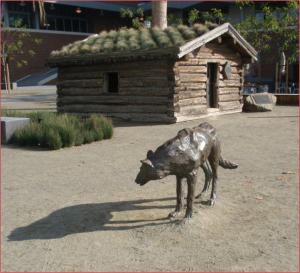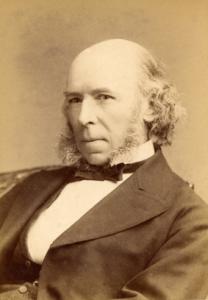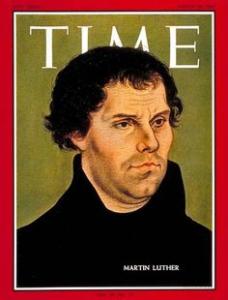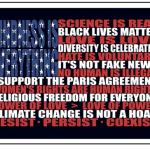The Wolves of Jack London
Jack London 4: Lone Wolf Ethics
Post-Darwinian Naturalism & Evolutionary Ethics
Lone Wolf ethics? Evolutionary ethics? Is that the best we can do?

If the preternatural wolf still lives unerasably within the human soul, this implies that we have inherited from our evolutionary ancestors the genes for violence. Theologians would label our innate wolfness ‘original sin’ or ‘inherited sin’. This would mean our inherited sin predates Adam and Eve. This would mean our world was already fallen even before Homo sapiens appeared on the evolutionary stage. This would mean natural evil is responsible for human evil.
How, then, should we construct our evolutionary ethics? Should we copy our nature? Should we emulate the wolf? Or should we try to overcome the nature we have inherited? Should we aspire to values of nonviolent love, compassion, kindness, and the common good? Should we try to obey the will of God rather than the will of our prurient nature?
Jack London’s fiction–especially his wolf troika: The Call of the Wild, White Fang, and The Sea Wolf–has prompted this question: will we Homo sapiens evolve into civilized creatures that outgrow our wolflike tendencies toward violence? Here’s where we have been and where we are going. By employing theology-of-culture we have been analyzing Jack London’s Wolf Troika. Now, we turn to history for further analysis and to theology for constructive ethics.
THE WOLVES OF JACK LONDON / Jack London Society

Jack London 1: The Call of the Wild
Jack London 4: Lone Wolf Ethics
Jack London 5: Wolf Pack Ethics
Jack London 6: Wolf and Lamb Ethics
Jack London and Alfred Lord Tennyson
If we desire to build our ethical superstructure on a naturalistic foundation, we would need to ask: what is this nature really like? Nearly a decade prior to the 1859 publication of Charles Darwin’s The Origin of Species by Natural Selection, Alfred Lord Tennyson (1809-1892) wrote In Memoriam, which included these lines:

Who trusted God was love indeed
And love Creation’s final law–
Tho’ Nature, red in tooth and claw
With ravine, shriek’d against his creed–
…O life as futile, then, as frail!
O for thy voice to soothe and bless!
What hope of answer, or redress?
Behind the veil, behind the veil.
Here is Tennyson’s answer to our question: what is nature really like? The poet answers: nature is blood “red in tooth and claw.”
Charles Darwin (1809-1882) was a non-poetic Tennyson. Tooth and claw tell the story of “the struggle for existence” in Darwin’s Origin of Species (1859). Although Darwin’s magnum opus confesses ignorance regarding the origin of life, it offers a fertile theory to explain the wide variety of species on our planet. It further explains why the vast majority of species have gone extinct, why they lost in the battle for existence. The dialectic of variation in inheritance acted upon by natural selection explains all of this (Darwin, 1859).
Note that natural selection applies to species, not individuals. Evolutionary change over time takes place when a species adapts to its environmental niche and survives by making more babies. Baby-making constitutes the survival of the fittest. Nature selects for survival those whose genetic inheritance adapts to changing environments.
A half century after Darwin, the new field of genetics added detail regarding variation in inheritance. And, the neo-Darwinian synthesis confirmed and extended the reach of Darwin’s already fertile theory. What we have learned from Tennyson and Darwin is this: it takes a tooth and a claw to survive to reproductive age and to send one’s progeny forth with their own teeth and claws to win in the struggle for existence.
Evolutionary ethics in our post-Darwinian era would have to recognize that nature is “red in tooth and claw,” that survival-of-the-fittest determines the winners in the struggle for existence, that killer animals are our ancestors, and that their propensity for violence lives on in Homo sapiens. If nature is to provide a foundation for human ethical deliberation, we would have to construct our ethical superstructure on this evolutionary inheritance. Would we then emulate or defy nature?
Evolutionary Ethics in Three Forms:
Lone Wolf Ethics, Wolf Pack Ethics, or Wolf & Lamb Ethics?
There are three alternatives, I think: (1) a naturalistic ethic that would emulate the lone wolf, (2) a naturalistic ethic that would emulate the wolf pack, or (3) or a non-naturalistic wolf & lamb ethic that would defy nature. If we wish to emulate nature as either a lone wolf or a wolf pack, we would ask nature to provide the good that we are to value. This means our moral action would emulate or imitate what nature does. But, might we prefer an ethical vision that takes us beyond nature? To a transformed nature?

If, firstly, we want to ground our moral ‘ought’ on nature’s ‘’is’, we may select the lone wolf to emulate. The lone wolf is a predator, a hunter, a killer. The wolf devours living creatures for its own survival. The wolf is fit to survive, because it destroys its competitors in the struggle for existence.
Or, secondly, we could cherry pick nature’s sweetness and ignore its bitterness. We could imagine the communal character of the lone wolf when in the pack. The pack procreates, incorporates, communicates, and, most importantly, cooperates. Could animal altruism within the pact become a virtue Homo sapiens should emulate? So, if we want to ground our moral ‘ought’ in nature’s ‘is’, we may select the wolf pack to emulate.

Or, thirdly, if we wish to defy nature, we could embrace wolf & lamb ethics. The wolf & lamb option is based on Isaiah 11:6. “The wolf shall live with the lamb.” Accordingly, we could pursue a morality that lifts human society up toward justice, peace, and love. But, if justice, peace, and love do not characterize nature as it is now, what justifies striving for what ought to be in the future? Something extra-natural? Something supra-natural? Might God’s will provide this moral leverage? Might the Bible’s promise of a new creation provide a moral vision of what ought to be?
I will contend that wolf ethics based on post-Darwinian emulation of what is in nature fails to provide an adequate foundation for robustly transformative moral action. Both the lone wolf and wolf pack proposals fail to provide the warrant for vigorously pursuing enhanced regard for the creation and the kind of love that encourages human flourishing. In my opinion, the good toward which we humans aspire must transcend what nature has given us. Moral action should aim for new achievements in human community that surpass our evolutionary inheritance. Isaiah’s prophetic vision of the wolf and lamb living together anticipates a new creation, something more than what we have inherited.
I find it helpful to turn to a distinctively Christian ethic based upon God’s promise for an eschatological transformation of both nature and history. The vision of God’s future offers a moral lure that carries us beyond where a strictly naturalistic ethic can take us.
Evolutionary Ethics Form One: Lone Wolf Ethics.
Lone Wolf Emulation Ethics presupposes that what nature already ‘is’ tells us what we ‘ought’ to do. Ethical naturalists argue that “ethical normativity is an instance of natural normativity, a kind of normativity already present in nature among plants and nonhuman animals,” observes Parisa Moosavi at the University of Toronto when analyzing Neo-Aristotelian metaethical naturalism (Moosavi, 2016, p. 37).
So, if evolution establishes the wolf as its standard, then we humans should emulate the wolf. I’ll let the lone wolf, the predator, represent our first option. Because the struggle for existence characterizes our evolutionary history “red in tooth and claw,” human social institutions should support laissez faire capitalism and minimize public support for the “unfit.”
The ethicist, we learned from Plato and Aristotle, lifts a vision of the good toward which we should strive. The good is that which we lack. So, we strive to achieve it. This implies that what exists is not yet good enough. Therefore, we strive for its betterment. What is cannot by itself determine what ought to be. To argue to an ought based on what is commits the naturalistic fallacy. To ask nature to tell us what is good also commits the naturalistic fallacy.[1]
What might this imply? To ground ethics in what is of nature provides no moral leverage to justify striving for what ought to be. A strictly naturalistic ethic lacks impetus for change, transformation, redemption. In short, the lone wolf emulation ethic is incoherent.
Nevertheless, we’ve seen such evolutionary ethics at work over the last two centuries in Social Darwinism, Eugenics, and Nazism. What nature is tells us what human society ought to do.
From Darwinism to Social Darwinism

Founder of Social Darwinism and coiner of the phrase, ‘survival of the fittest,’ Herbert Spencer, invokes an evolutionary calculus to establish the good toward which we should aspire. “The conduct to which we apply the name good, is the relatively more evolved conduct; and that bad is the name we apply to conduct which is relatively less evolved” (Spencer, 1879, 28-29). To be good is to be more highly evolved. Those of us less highly evolved are considered bad. With this calculus, rich and powerful people are judged to be more highly evolved and therefore good.
Across the Atlantic in America, the business tycoons fed on Social Darwinism like pigs in a trough. John D. Rockefeller told his Sunday school class: “The growth of a large business is merely a survival of the fittest…It is merely the working out of a law of nature and a law of God” (Hofstadter, 1944, 8). The law of nature became the moral justification for laissez faire capitalism.
Nature teaches us how society ought to order itself. We should avoid intervening with government programs of social welfare to aid people suffering from childhood diseases, people with low intelligence, or people who are prone to crime. If we let the poor die by the wayside, then the entire human race will progressively advance. Spencer puts it this way: “The whole effort of nature is to get rid of such [the poor], to clear the world of them, and make room for better…it is best they should die” (Spencer, 1879, 27-28). What we have observed about the survival-of-the-fittest in the pre-human realm should become that goal to which we humans should aspire. Being stewards of our killer ape inheritance, we should allow the weaker among us to die by the wayside so that a new and stronger human can evolve.
Spencer defined “evolution” as the “integration of matter and motion,” the process of breaking simple homogeneity with heterogeneity, followed by a new more highly developed homogeneity (Spencer, First Principles, 1897, 407). This is what happens in nature. What happens in human society should follow this pattern. The heterogeneity among competing individuals which we see today will eventually be replaced by a higher degree of cooperation, by more altruistic behavior (Spencer, First Principles, 1897, 524).
Out of our killer wolf ancestry we human wolves will give rise to altruism. To arrive at this more advanced stage, government should step out of the way, let the poor die by the way side (before they can reproduce more children of their own kind), and permit the natural processes of evolution to integrate the more fit who will have survived. Once the poor have gone extinct, human society will progress into an altruistic and mutually supportive community.
From Social Darwinism to Eugenics

Contemporary to Spencer was Darwin’s cousin, Francis Galton. Galton read his cousin’s book and then, in 1869, published his own broadly read treatise, Hereditary Genius. Galton proposed that the improvement of the human race could be accomplished by selective breeding. He gave the name eugenics to this form of Social Darwinism, a new approach to controlling our own evolutionary future.[2]
“I propose to show in this book that a man’s natural abilities are derived by inheritance, under exactly the same limitations as are the form and physical features of the whole organic world. Consequently, as it is easy, notwithstanding those limitations, to obtain by careful selection a permanent breed of dogs or horses gifted with peculiar powers of running, or of doing anything else, so it would be quite practicable to produce a highly–gifted race of men by judicious marriages during several consecutive generations” (Galton, 1892).
The goal of eugenics programs was to speed up human evolution. This could be done in two ways. First, positive eugenics by encouraging the “best” among us to have more children. Second, negative eugenics by preventing the “worst” among us from having children.
Who are the “best” or the “fit” and who are the “worst” or the “unfit?” Galton attempted a definition of this in his book. Curiously, members of the Anglo-Saxon race constitute the “best and the brightest.” The “best and highest” are, in fact, the British upper class. Other more primitive and less civilized races were considered less highly evolved and slated for extinction. The unfit would also include people within English speaking society with mental defects, physically handicapped, and even those at the lower rungs of the socio-economic ladder.
One of the problems with modern society, argued Social Darwinists and eugenicists, was that better medical practices and charity were making it possible for the unfit to mature to an age where they could make their own babies. Margaret Sanger (1879-1966), founder of Planned Parenthood, sought to right this wrong.
“In the early history of the race, so-called ‘natural law’ reigned undisturbed. Under its pitiless and unsympathetic iron rule, only the strongest, most courageous could live and become progenitors of the race. The weak died early or were killed. Today, however, civilization has brought sympathy, pity, tenderness and other lofty and worthy sentiments, which interfere with the law of natural selection. We are now in a state where our charities, our compensation acts, our pensions, hospitals, and even our drainage and sanitary equipment all tend to keep alive the sickly and the weak, who are allowed to propagate and in turn produce a race of degenerates” (Sanger, 1917, 7).
What modern civilization needs, according to the eugenicists, is an ethic that allows natural selection to operate at the human social level.
Two world wars were fought under the shadow of Social Darwinism. What was at first called “The Great War” was watched closely by Darwinists on both sides of the English Channel. “The First World War was justified on this principle: if what matters is the survival of the fittest, then what we need is a good war to sort out who is best fitted to survive” (Wright, 2006, 67). This line of thinking became one signpost among others pointing the way to World War II. Instead of advancing to a higher stage of evolution, modern civilization reverted to the primeval lone wolf.
From Eugenics to Nazism

In Germany the evolutionary calculus was applied more vigorously to racial differences. Professor Ernst Haeckel (1834-1919) held that the “lower races (such as the Veddas or Australian Negroes) are psychologically nearer to the mammals (apes and dogs) than to civilized Europeans; we must, therefore assign a totally different value to their lives” (Haeckel, 1905, 391).
By the 1890s Alfred Ploetz (1860-1940) had coined the term, Rassenhygiene (racial hygiene). The human race as a whole, he argued, could be purified by evolutionary principles if we would simply deny medical attention to children under the age of puberty. We should allow only the healthy to live to the age of reproduction. If only the strong would give birth, the entire human race would advance in fitness. By the 1920s the concept of “racial hygiene” was used to distinguish the more highly evolved Nordic or Aryan race from the allegedly less evolved Jewish race. German anti-Semitism found an apparent scientific justification in Social Darwinism.
This became the central philosophical inheritance exploited by Adolph Hitler (1889-1945) as he institutionalized Rassenhygiene during the Third Reich (Proctor, 1988). Hitler, writing the book that would guide Germany into national socialism and into World War II, Mein Kampf (My Struggle), appealed to the “iron logic of Nature.” Hitler argued that “the stronger must dominate and not blend with the weaker…for if this law did not prevail, any conceivable higher development of organic living beings would be unthinkable” (Hitler, 1925, 1971, 285, 287). Social Darwinism provided the scientific justification for what we now call the “Holocaust,” the systematic attempt by a government to exterminate the physically handicapped, the mentally retarded, and the Jewish and gypsy members of the population.
When Hitler combined the “struggle for life” with the “survival of the fittest,” this resulted “in a sort of eschatological Darwinism,” says Joachim C. Fest. Hitler “boasted of his intention of marching over Europe in great ‘blood-based fishing expeditions’ to help blond, pale-skinned human material ‘spread its blood’ and thereby win dominance” (Fest, 1975, 208). In the hands of the Nazis, Social Darwinism became a far more brutal ethic than it was thought to be by its first formulators. Within the din of modern civilization the lone wolf snarls and howls.
Might theologians find lone wolf evolutionary ethics attractive?
Evolution topped off with lone wolf emulation ethics appealed to many leaders in English speaking churches in the late 19th and early 20th centuries. Liberal Protestant clergy—usually dubbed ‘modernists’–in large numbers embraced both biological Darwinism and Social Darwinism.
What attracted them to their variant of theistic evolution was the doctrine of progress. Progress appeared to be a form of divine providence at work in both nature and society. Evolution spawned hope for betterment of the human condition. A eugenics sermon of the 1920s included the following: “Much that is evil in man’s passions and appetites is due to natural instincts inherited from an animal ancestry. In fact, man is not a being who has fallen from an ideal state of innocence; he is an animal slowly gaining spiritual understanding and with the gain rising far above his distant ancestors” (Barnes, 1927, 312-313). Lone wolf ethics would pave the road to evolutionary advance.
Peter Bowler describes the alliance of Social Darwinism and the Liberal Protestant pulpit: “The fact that Darwinism could be presented as a mechanism of ‘progress through struggle’ opened the way for an alliance of liberal religious thinkers and philosophical supporters of free-enterprise capitalism” (Bowler, 2007, 103).
Not everyone who respected the teachings of Jesus could support such a marriage between evolutionary ethics and the Sermon on the Mount. American philosopher Charles Sanders Pierce (1839-1914) was critical. “The Origin of Species of Darwin merely extends politico-economical views of progress to the entire realm of animal and vegetable life…As Darwin puts it on his title page, it is the struggle for existence; and he should have added for his motto: Every individual for himself, and the Devil take the hindmost! Jesus, in his Sermon on the Mount, expressed a different opinion” (Peirce, 1931-1958, 1: 358-360) .
In contrast to naturalists, most Christian theologians find their ethical criterion not in nature but in Jesus Christ. Jesus Christ promises that nature as it is will not endure forever. Rather, nature will be transformed, redeemed. A new creation will supplement the present creation. It is God’s creating and transforming love that provides the ethicist with the leverage to strive for a good that is yet to be fully realized.
According to the late Denis Edwards, “God creates through all the laws and patterns of nature, but these laws and patterns do not set the standard for human behavior. This standard is set by the redemptive love revealed in Christ….[by] a God whose priority is for those who suffer, who suffers in love with the suffering ones and who promises a glorious future for the poorest and weakest. This is the polar opposite of all forms of social Darwinism” (Edwards, 2020, 374).
Nächstenliebe Ethics


What should be obvious is that the emulate-nature-ethic commits the fallacy of petitio principii or begging the question. We select from nature an ethical principle we have already deemed good. Figuratively speaking, naturalists have frequently selected the lone wolf model of “natural selection” to emulate. Natural selection was dubbed by Darwin, “the struggle for existence,” and by Spencer, “survival of the fittest.” The Social Darwinist tradition selected from among nature’s various traits—nature blood “red in tooth and claw”–predation for human society to emulate.
What’s the alternative? One could adopt an ethic of neighbor love. For Martin Luther (1483-1546), and for one of his most devoted disciples, Martin Luther King, Sr. (1899-1984), father of Martin Luther King, Jr. (1929-1968), this was called, Nächstenliebe. “In all of one’s works a person should…be shaped by and contemplate this thought alone: to serve and benefit others in everything that may be done, having nothing else in view except the need and advantage of the neighbor” (Luther, 2015-2020, 520).
But is neighbor love natural? Luther would answer, “yes.” Luther believed that neighbor love is God’s law that is built right into the natural world God created.
An ethical vision that inspires us to love our neighbor for the sake of our neighbor’s flourishing relies upon an inescapable personal dimension. Danish Lutheran philosopher Knud Ejler Løgstrup proffers a near-naturalistic grounding for an ethics that demands loving our neighbor. Included in our nature is relationship, Løgstrup observes. And relationship has built right into it the demand that we love those with whom we embedded in relationship. Our impact on another person “may be a very small matter, involving only a passing mood, a dampening or quickening of spirit, a deepening or removal of some dislike. But it may also be a matter of tremendous scope, such as can determine if the life of the other flourishes or not” (Løgstrup, 1997, 15-16). For Løgstrup or any other ethicist to ground ethics of neighbor love in nature must take a perspective other than the post-Darwinian perspective. What Løgstrup selects from nature is not the wolf alone, but rather the wolf & lamb living together.
What’s Next?
Jack London was right: we human beings are through and through natural beings.[3] Theologian of Hope Jürgen Moltmann also makes this point.

“Human beings no longer stand over against nature, as the determining subjects of knowledge and endeavour. As the determining subjects of knowledge and endeavour they are also part of a history with nature. They have nature—possess it—and yet they are themselves, at the same time, nature, which goes on developing in them and in their world” (Moltmann, 2003, 15).
While indulging in the literary lycanthropy of novelist Jack London, we are asking about evolutionary ethics. Given that we human beings are natural, should we ground our moral norms solely on what is natural? If so, does the lone wolf blood “red in tooth and claw” provide the norm for human moral behavior? Do we want a repeat of Social Darwinism, Eugenics, and Nazism?
What’s next? In our next post, we will turn to Wolf Pack Ethics. Accordingly, the evolutionary ethicist selects in what is sweet in nature and selects out what is bitter. What is sweet is cooperation and even altruism within the group. In our case, within the wolf pack and within the human family or tribe. Even though we behave viciously to those outside our wolf pack, we are capable of cooperating and even caring for others within our pack. Does this mark an evolutionary advance?
▓

Ted Peters directs traffic at the intersection of science, religion, and ethics. Peters is an emeritus professor at the Graduate Theological Union, where he co-edits the journal, Theology and Science, on behalf of the Center for Theology and the Natural Sciences, in Berkeley, California, USA. He authored Playing God? Genetic Determinism and Human Freedom? (Routledge, 2nd ed., 2002) as well as Science, Theology, and Ethics (Ashgate 2003). Along with Martinez Hewlett, he co-authored three books on the evolution controversy. Along with Martinez Hewlett, Joshua Moritz, and Robert John Russell, he co-edited, Astrotheology: Science and Theology Meet Extraterrestrial Intelligence (2018). Along with Octavio Chon Torres, Joseph Seckbach, and Russell Gordon, he co-edited, Astrobiology: Science, Ethics, and Public Policy (Scrivener 2021). See his website: TedsTimelyTake.com. In the near future he will publish, The Voice of Christian Public Theology with the Australian Theological Forum.
▓
Notes
 [1] The naturalistic fallacy comes in two forms. First, the naturalistic fallacy arises when we ask nature understood scientifically to tell us what the good is. Second, the naturalistic fallacy arises when we try to base an ought on what is. To avoid this fallacy, some philosophers appeal to non-naturalism to ground ethics. Non-naturalism, which avoids the naturalistic fallacy, “denotes the semantic thesis that moral predicates cannot be analyzed in non-normative terms.”
[1] The naturalistic fallacy comes in two forms. First, the naturalistic fallacy arises when we ask nature understood scientifically to tell us what the good is. Second, the naturalistic fallacy arises when we try to base an ought on what is. To avoid this fallacy, some philosophers appeal to non-naturalism to ground ethics. Non-naturalism, which avoids the naturalistic fallacy, “denotes the semantic thesis that moral predicates cannot be analyzed in non-normative terms.”
[2] Eugenics led to “Scientific Racism,” which continues today in the wake of the Human Genome Project (1990-2003).
[3] Jack London, more than likely, was only informally a naturalist. Heavy philosophical naturalism, especially when based on post-Darwinian evolutionary theory, is incoherent. What? Incoherent? Really? Why? Because any belief system such as naturalism requires confidence in the human faculty of reason. And reason is undercut by the assumptions of evolutionary theory.
Calvinist philosopher Alvin Plantiga explains. Belief in evolution does not contribute to human confidence in the reliability of our cognitive faculties, argues Plantiga. Why? Because evolution has no interest in truth. Evolution is concerned about one and only one thing, namely, adaptation. “What evolution underwrites is only (at most) that our behavior is reasonably adaptive to the circumstances in which our ancestors found themselves; hence (so far forth) it does not guarantee mostly true or verisimilitudinous beliefs….natural selection is interested, not in truth, but in appropriate behavior” (Plantiga, 2012, p. 105). The neuro processes within our brain do not care whether we learn the truth. Neuro processes only make us think what is necessary for adaptation. With this in mind, one dare not construct a naturalistic epistemology based upon a natural process which is not obligated to prompting our minds to apprehend the truth of things. Naturalism is self-defeating.
“So, I claim that we have no reason to believe and good reason not to believe the proposition that if evolution and naturalism were true, then our cognitive faculties would be reliable….Thus there is deep conflict between naturalism and one of the most important claims of current science. Given that naturalism is at least a quasi-religion, there is indeed a science-religion conflict all right, but it is not between science and theistic religion; it is between science and naturalism. That’s where the conflict really lies” (Plantiga, 2012, p. 114).
In sum, constructing a naturalistic worldview on evolutionary theory would be like living in an ice-fishing shanty during the summertime.
References
Barnes, E. W. (1927). Should Such a Faith Offend? Sermons and Addresses. London: Hodder and Stoughton.
Batson, D. (2017). The Empathy-Altruism Hypothesiis. In E. S.-T. Emma M Seppala, The Oxford Handbok on Compassion Science (pp. 27-40). Oxford: Oxford University Press.
Bennett, G., Hewlett, M., Peters, T., & Robert John Russell, e. (2008). The Evolution of Evil. Gottingen: Vandenhoeck & Ruprecht.
Bowler, P. (2007). Trials and Gorilla Sermons: Evolution and Christianity from Darwin to Intelligent Design. Cambridge MA: Harvard University Press.
Coakley, S. (2013). Evolution, Cooperation, and Ethics. Studies in Christian Ethics 26:2, 135-139.
Darwin, C. (1859). On the Origin of Species by Means of Natural Selection. London: Murray.
David, A. (2009). Our Inner Ape. UU World.
Dawkins, R. (1976, 1989). The Selfish Gene. Oxford: Oxford University Press.
Dawkins, R. (1986). The Blind Watchmaker. London: WW Norton.
Delio, I. (2020). Theology of Nature or Relational Holism: Building on Teilhard’s Vision. In e. Ted Peters and Marie Turner, God in the Natural World: Theological Explorations in Appreciation of Denis Edwards (pp. 171-191). Adelaide: ATF.
Desmond, A. (1997). Huxley: Evolution’s High Priest. London: Michael Joseph.
Drees, W. (2003). Naturalism. In e. J Wentzel Vrede van Huyssettn, Encyclopedia of Science and Religion (pp. 593-597). New York: Macmillan, Thomson, Gale.
Edwards, D. (2020). Review of Ted Peters. In e. Anthony Kain and Hilary Regan, Denis Edwards in His Own Words (pp. 371-374). Adelaide: ATF.
Fest, J. (1975). Hitler. New York: Random House / Vintage.
Galton, F. (1892). Hereditary Genius. London:: McMillan.
Ghiselin, M. (1974). The Economy of Nature and the Evolution of Sex. Berkeley and Los Angeles CA: University of California Press.
Haeckel, E. (1905). The Wonder of Life. New York: Harper.
Hitler, A. (1925, 1971). Mein Kampf tr Ralph Manheim. New York: Houghton Mifflin.
Hofstadter, R. (1944). Social Darwinism in American Thought. Boston: Beacon.
Hume, D. (1888). A Treatise on Human Nature. Oxford: Clarendon Press.
Huxley, T. (1880). The Coming of Age of the Origin of Species. Science 1, 15-17 + 20.
Huxley, T. (1896). Evolution and Ethics. Amherst NY: Prometheus.
Kohn, M. (11/20/2008). The Needs of the Many. Nature 7220:456, 296-299.
Løgstrup, K. (1997). The Ethical Demand. Notre Dame IN: University of Notre Dame Press.
Luther, M. (2015-2020). The Freedom of a Christian. In M. Luther, The Annotated Luther, 5 Volumes (pp. 1: 467-518). Minneapolis MN: Fortress Press.
Moltmann, J. (2003). Science and Wisdom. Minneapolis MN: Fortress.
Moore, G. E. (1903, 1959). Principia Ethica. Cambridge UK: Cambridge University Press.
Moosavi, Parisa, 2016. “On the Relevance of Evolutionary Biology to Ethical Naturalism.” The Ethics of Nature and the Nature of Ethics. Ed., Gary Keogh. Lanham MA: Lexington.
Nisson, U. (n.d.). Naturalistic Fallacy. In e. Wentzel Vrede Van Huyssteen, Encyclopedia of Science and Religion 2 Volumes.
Pannenberg, W. (1969). Theology and the Kingdom of God. Louisville KY: Westminster John Knox.
Peirce, C. S. (1931-1958). Collected Papers of Charles Sanders Peirce, 2 Volumes. Bloomington IN: Indiana University Press.
Peters, T. (2nd Ed, 2003). Playing God? Genetic Determinism and Human Freedom. London and New York: Routledge ISBN0-415-94248-0-415-94249-7.
Peters, T. (2005). Evolution from Creation to New Creation. Nashville TN: Abingdon.
Plantiga, A. (2012). ”The Evolutionary Argument against Naturalism.” The Blackwell Companion to Science and Christianity. Eds., J.B. Stump and Alan G. Padgett. Oxford: Wiley-Blackwell; 103-115.
Pope, S. (2007). Evolution and Christian Ethics. Cambridge UK: Cambridge University Press.
Proctor, R. (1988). Racial Hygiene: Medicine Under the Nazis. Cambridge MA: Harvard University Press.
Ruse, M. (2001). Evolution. In e. Lawrence C Becker and Charlotte B Becker, Encyclopedia of Ethics (pp. 501-503). London: Routledge.
Sanger, M. (1917). Birth Control and Women’s Health. Birth Control Review 1:12.
Spencer, H. (1879). The Data of Ethics. New York: A L Burt.
Spencer, H. (1897). First Principles. New York: D Appleton.
Tillich, P. (1960). Love, Power, and Justice. Oxford: Oxford University Press.
Wilson, E. O. (1978). On Human Nature. New York: Bantam.
Wright, N. (2006). Evil and the Justice of God. London: SPCK.
Wright, R. (1994). The Moral Animal. New York: Random House.














